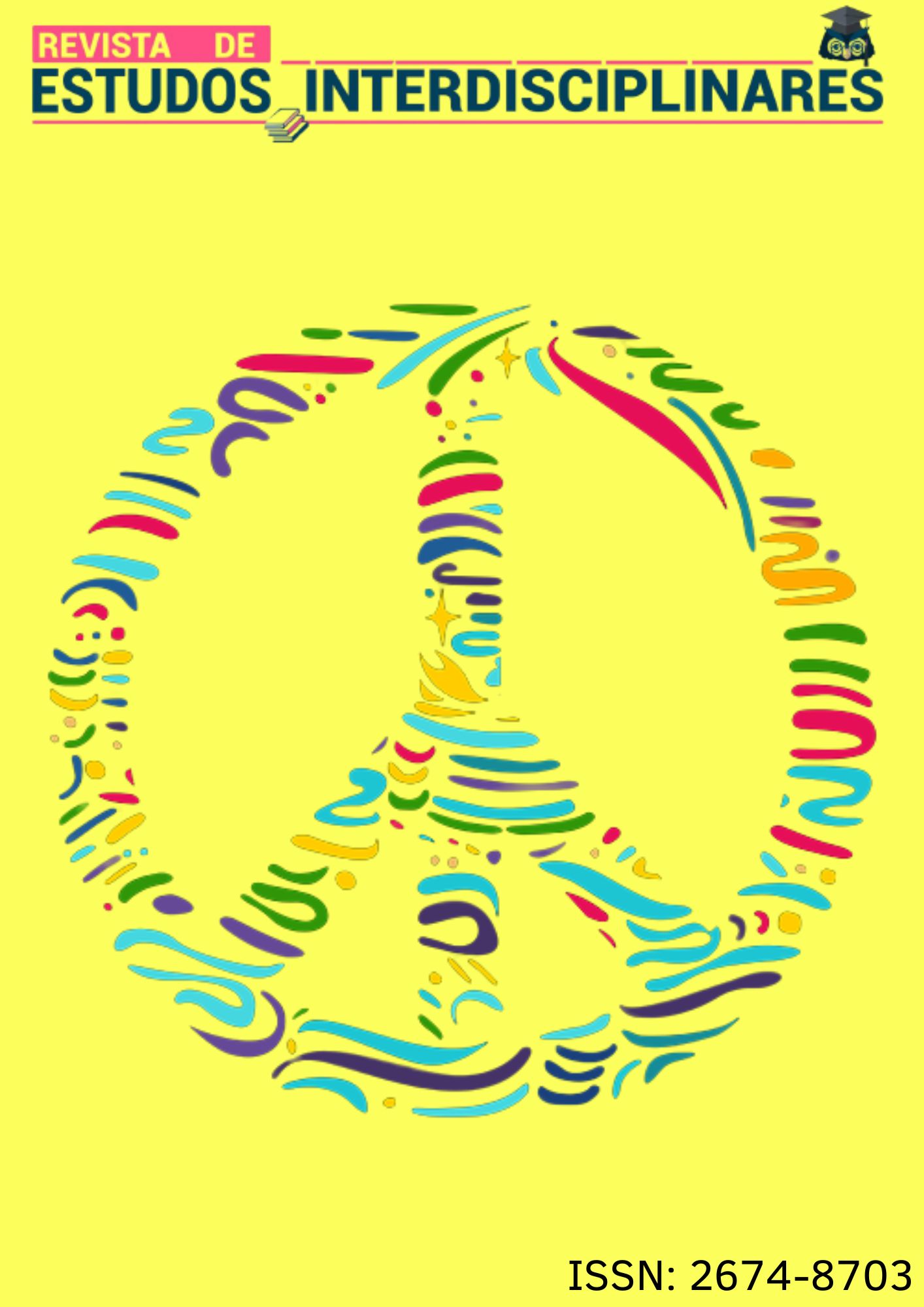PUBLICAÇÕES SOBRE GAMIFICAÇÃO NO PERÍODO DE 2011 A 2020:
UM ESTUDO BIBLIOMÉTRICO NA BASE DE DADOS WEB OF SCIENCE
Visualizações: 248DOI:
https://doi.org/10.56579/rei.v5i4.732Keywords:
Gamificação, Estudo bibliométrico, Aprendizagem baseada em jogos, TIC, Tecnologia na educaçãoAbstract
O objetivo deste artigo foi analisar o panorama das publicações sobre gamificação no contexto internacional, compreendendo a última década (2011-2020). Para isso, foi realizado um estudo bibliométrico que possibilitou verificar as características das publicações. Os resultados indicam que a produção científica sobre gamificação é maior nas áreas de Education Educational Research (Pesquisa Educacional e em Educação) e Computer Science (Ciência da Computação). No que tange ao idioma, predominam as publicações em inglês representando aproximadamente 93.43% dos artigos publicados, seguindo uma tendência mundial. Os resultados, possibilitam traçar padrões de produtividade sobre o tema gamificação possibilitando fomentar a construção do conhecimento multidisciplinar, e apontar possíveis a lacunas de pesquisa.
Downloads
References
AURA, Isabella; HASSAN, Lobna; HAMARI, Juho. Teaching within a Story: Understanding storification of pedagogy. International Journal of Educational Research, v. 106, p. 101728, 2021. DOI: https://doi.org/10.1016/j.ijer.2020.101728
CONNOLLY, Thomas M. et al. A systematic literature review of empirical evidence on computer games and serious games. Computers & education, v. 59, n. 2, p. 661-686, 2012. DOI: https://doi.org/10.1016/j.compedu.2012.03.004
DICHEVA, Darina et al. Gamification in education: A systematic mapping study. Journal of Educational Technology & Society, v. 18, n. 3, p. 75-88, 2015.
DOMÍNGUEZ, Adrián et al. Gamifying learning experiences: Practical implications and outcomes. Computers & education, v. 63, p. 380-392, 2013. DOI: https://doi.org/10.1016/j.compedu.2012.12.020
GAMIFIN; GAMIFIN CONFERENCE. Disponível em: https://gamifinconference.com/ . Acesso: 15.01.21.
GG; GAMIFICATION GROUP. Disponível em: https://www.tut.fi/Gamification/members/j-hamari/. Acesso: 15.01.21.
GIRARD, Coralie; ECALLE, Jean; MAGNAN, Annie. Serious games as new educational tools: how effective are they? A meta‐analysis of recent studies. Journal of computer assisted learning, v. 29, n. 3, p. 207-219, 2013. DOI: https://doi.org/10.1111/j.1365-2729.2012.00489.x
HAMARI, Juho. Transforming homo economicus into homo ludens: A field experiment on gamification in a utilitarian peer-to-peer trading service. Electronic commerce research and applications, v. 12, n. 4, p. 236-245, 2013.
HAMARI, Juho. Transforming homo economicus into homo ludens: A field experiment on gamification in a utilitarian peer-to-peer trading service. Electronic commerce research and applications, v. 12, n. 4, p. 236-245, 2013. DOI: https://doi.org/10.1016/j.elerap.2013.01.004
HAMARI, Juho; HASSAN, Lobna; DIAS, Antonio. Gamification, quantified-self or social networking? Matching users’ goals with motivational technology. User Modeling and User-Adapted Interaction, v. 28, n. 1, p. 35-74, 2018. DOI: https://doi.org/10.1007/s11257-018-9200-2
HAMARI, Juho; KOIVISTO, Jonna; SARSA, Harri. Does gamification work?--a literature review of empirical studies on gamification. In: 2014 47th Hawaii international conference on system sciences. Ieee, 2014. p. 3025-3034. DOI: https://doi.org/10.1109/HICSS.2014.377
HANUS, Michael D.; FOX, Jesse. Assessing the effects of gamification in the classroom: A longitudinal study on intrinsic motivation, social comparison, satisfaction, effort, and academic performance. Computers & education, v. 80, p. 152-161, 2015. DOI: https://doi.org/10.1016/j.compedu.2014.08.019
HASSAN, Lobna; DIAS, Antonio; HAMARI, Juho. How motivational feedback increases user’s benefits and continued use: A study on gamification, quantified-self and social networking. International Journal of Information Management, v. 46, p. 151-162, 2019. DOI: https://doi.org/10.1016/j.ijinfomgt.2018.12.004
HEYWARD, Paul. Emotional Engagement Through Drama: Strategies to Assist Learning through Role-Play. International Journal of Teaching and Learning in Higher Education, v. 22, n. 2, p. 197-204, 2010.
KLOCK, Ana Carolina Tomé et al. Tailored gamification: A review of literature. International Journal of Human-Computer Studies, p. 102495, 2020. DOI: https://doi.org/10.1016/j.ijhcs.2020.102495
LINKEDIN. Disponível em: https://es.linkedin.com/in/jomartpa . Acesso: 15.01.21.
MARTÍ-PARREÑO, J.; GALBIS-CÓRDOVA, A.; CURRÁS-PÉREZ, R. Teachers’ beliefs about gamification and competencies development: A concept mapping approach. Innovations in Education and Teaching International, p. 1–11, 2019. doi:10.1080/14703297.2019.1683464 DOI: https://doi.org/10.1080/14703297.2019.1683464
MCGONIGAL, Jane. Reality is broken: Why games make us better and how they can change the world. Penguin, 2011.
MONTOLA, Markus et al. Applying game achievement systems to enhance user experience in a photo sharing service. In: Proceedings of the 13th International MindTrek Conference: Everyday Life in the Ubiquitous Era. 2009. p. 94-97. DOI: https://doi.org/10.1145/1621841.1621859
NELSON, Mark J. Soviet and American precursors to the gamification of work. In: Proceeding of the 16th international academic MindTrek conference. 2012. p. 23-26. DOI: https://doi.org/10.1145/2393132.2393138
SEABORN, Katie; FELS, Deborah I. Gamification in theory and action: A survey. International Journal of human-computer studies, v. 74, p. 14-31, 2015. DOI: https://doi.org/10.1016/j.ijhcs.2014.09.006
SIMÕES, Jorge; REDONDO, Rebeca Díaz; VILAS, Ana Fernández. A social gamification framework for a K-6 learning platform. Computers in Human Behavior, v. 29, n. 2, p. 345-353, 2013. DOI: https://doi.org/10.1016/j.chb.2012.06.007
THOM, Jennifer; MILLEN, David; DIMICCO, Joan. Removing gamification from an enterprise SNS. In: Proceedings of the acm 2012 conference on computer supported cooperative work. 2012. p. 1067-1070. DOI: https://doi.org/10.1145/2145204.2145362
Downloads
Published
How to Cite
Issue
Section
License
The Journal of Interdisciplinary Studies adopts the Creative Commons Attribution 4.0 International License (CC BY 4.0), which allows for sharing and adapting the work, including for commercial purposes, provided proper attribution is given and the original publication in this journal is acknowledged.


